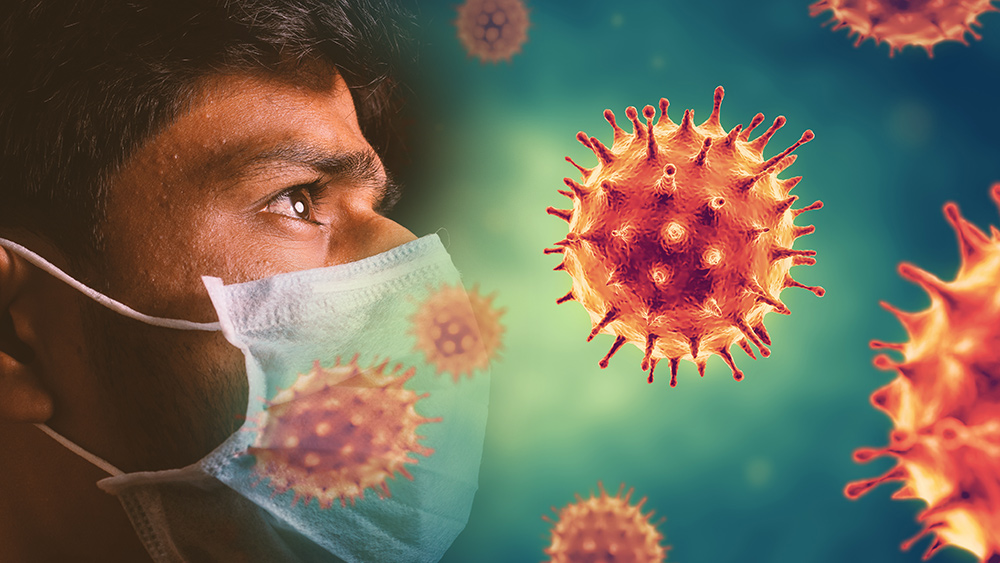Study: Patients with chronic pain prefer cannabis over opioids and other prescription medications
06/04/2020 / By Divina Ramirez

Marijuana is legal in 11 states for adults over the age of 21. It is also legal for medical use in 33 states. Cannabis legalization has been the subject of many a heated debate over the last decade. Opponents of cannabis legalization often argue that prolonged marijuana use can have adverse effects on the lungs, heart and brain.
Despite these arguments, a recent review found that people with chronic pain prefer cannabis over opioids or other pain medications.
Using cannabis instead of opioids
Published in The Journal of Pain, the review revealed that about 80 percent of 1,321 medical cannabis users reported using it in place of prescribed pain medications like opioids and benzodiazepines like Xanax and Valium.
Most of the participants reported using cannabis because, unlike the pain medications, it did not cause adverse side effects. Cannabis also helped them manage their pain better than the prescribed drugs.
In fact, the review showed that an incredible 88 percent of those who used medical cannabis reported better pain relief and pain management.
Cannabis: Nature’s analgesic
Multiple studies show that cannabis has potent analgesic effects against chronic pain. In a recent article published in Pain Management Nursing, a group of researchers from Washington State University (WSU) found that 63 percent of 112 adults prescribed opioids for persistent pain and/or for opioid use disorder reported pain as a major motivation for cannabis use.
Adults with opioid use disorder also reported using cannabis to relieve drug withdrawal symptoms. Based on their findings, the researchers concluded that cannabis has beneficial effects for adults dealing with persistent pain and those with opioid addiction.
Another team of researchers from WSU found that cannabis use reduced pain associated with headaches and migraines by nearly 50 percent. Their findings, which were published recently in The Journal of Pain, also revealed a slight gender difference in pain reduction, where men reported more significant improvements in headache pain than women.
According to the researchers, preclinical studies suggest that cannabinoids show potential as a natural treatment for migraines. Cannabinoids are compounds found in the Cannabis sativa plant.
Experts have isolated at least 113 different cannabinoids from the plant, all of which exhibit varied effects. Two of the most well-known cannabinoids used in medicine are tetrahydrocannabinol (THC) and cannabidiol (CBD). THC is the active substance in marijuana that produces a “high” effect.
Current research on cannabis suggests that THC is responsible for the natural analgesic effects of cannabis. THC disrupts the transmission of pain signals to the brain. CBD, on the other hand, binds to pain receptors and produces a therapeutic effect.
The future of cannabis
Despite cannabis’s science-backed health benefits, prolonged use of cannabis does have some potential side effects. Cannabis smokers, for instance, face a heightened risk of lung disease and cardiovascular disease.
Cannabis can also impair the senses long after it has been smoked or ingested. Some studies also suggest that repeated use of cannabis might affect vital brain functions, although this remains an active area of research. (Related: Marijuana found to reduce blood flow to the brain: Study authors suggest this may increase risk of dementia, but this effect also makes it medicinally useful for epileptics.)
For these reasons, people considering cannabis for their chronic pain ought to consult with their healthcare provider beforehand.
But despite its potential health risks, more and more patients with chronic pain are turning to cannabis for better pain management and, in some cases, sleep. A 2017 review published in PAIN found that patients with chronic pain reported a number of health benefits after using medical cannabis.
The participants reported that medical cannabis improved their chronic pain and enhanced the overall quality of their lives. Some of them also reported that medical cannabis helped treat their insomnia, reduced nightmares and prevented other sleep disruptions.
The participants also believe that medical cannabis is not addictive. It’s worth noting that most of them have had substantial experience with opioids.
All in all, recent studies suggest that cannabis shows potential as a natural treatment for patients with chronic pain.
Read more articles about cannabis and its health benefits at CannabisCures.news.
Sources include:
Tagged Under: addiction, alternative medicine, biomedical research, cannabis, CBD, herbal medicine, Herbs, medical marijuana, natural cures, natural medicine, Opioids, pain relief, Prescription Medicine, prevention, remedies, research, THC



















